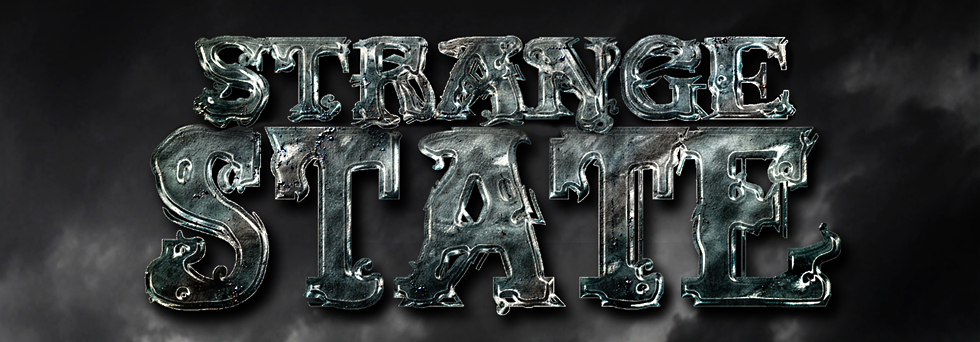John Greenleaf Whittier's peculiar 1892 poem "The Garrison of Cape Ann" tells briefly the tale of a garrison of soldiers stationed at a fort in Cape Ann, Maine in 1692--at the same time as the Salem Witch Trials.
In the account, Whittier tells that the men were assailed by strange entities that emerged from the ether and couldn’t be stopped by musket balls. On the surface, they do seem supernatural and Whittier's description of plumed and painted warriors appears to clearly speak of Native Americans.
In the poem, the author states that this account was written about by Cotton Mather in his Magnalia Christi Americana. In this it is said that he recounted the tale of a yeoman farmer named Ebenezer Babson from Cape Ann (said to also be called Gloucester in Mather's work, though Mather spells it Glocester) as he encountered strange men on and around his farm that behaved and dressed peculiarly. Their noisome, threatening presence led Babson and his family to seek refuge at the fort. This, the legend tells, leads up to the events about which Whittier later writes.
Over the years, this tale has been retold and embellished. The strange men from the poem seem to read quite straightforwardly as Native Americans, albeit spectral ones. Yet in countless retellings they begin to take on the tinge of alien beings or extradimensional creatures. This is all give a credence and gravitas unwarranted by its association with Cotton Mather, especially as it seems few have bothered to check the source document for any of this.
In doing a keyword search of Mather's prodigious tome, I learn quickly that there is no match to the name Babson; the term Ebenezer is only used as it relates biblically; there is only once instance of the word yeoman and it is not about Ebenezer Babson; Cape Ann is mentioned twice (but not in relation to any strange goings-on); nothing matching these events is related to the references to 1692; there is nothing in relation to Gloucester at all and only two irrelevant references to Glocester; and Maine is only referenced innocuously in an Appendix of ministers from various places.
In effect, we're left with a story that sounds very much made up. While it is certainly written about in Whittier's poem (and that poem does reference Mather's writing), it doesn't appear to be mentioned at all by Cotton Mather in his book. Yet, the tale promulgates across cyberspace unquestioned, as so many do these days.
You can read the pertinent excerpts of the poem here:
But their voices sank yet lower, sank to husky tones of fear,
As they spake of present tokens of the powers of evil near;
Of a spectral host, defying stroke of steel and aim of gun;
Never yet was ball to slay them in the mould of mortals run!
Thrice, with plumes and flowing scalp-locks, from the midnight wood they came,—
Thrice around the block-house marching, met, unharmed, its volleyed flame;
Then, with mocking laugh and gesture, sunk in earth or lost in air,
All the ghostly wonder vanished, and the moonlit sands lay bare.
Midnight came; from out the forest moved a dusky mass that soon
Grew to warriors, plumed and painted, grimly marching in the moon.
“Ghosts or witches,” said the captain, “thus I foil the Evil One!”
And he rammed a silver button, from his doublet, down his gun. [Both lines about these plumed and painted warriors seem to reference
Native Americans adorned with feathers and painted or tattooed skin]
Once again the spectral horror moved the guarded wall about;
Once again the levelled muskets through the palisades flashed out,
With that deadly aim the squirrel on his tree-top might not shun,
Nor the beach-bird seaward flying with his slant wing to the sun.
Like the idle rain of summer sped the harmless shower of lead.
With a laugh of fierce derision, once again the phantoms fled;
Once again, without a shadow on the sands the moonlight lay,
And the white smoke curling through it drifted slowly down the bay!
“God preserve us!” said the captain; “never mortal foes were there;
They have vanished with their leader, Prince and Power of the air!
Lay aside your useless weapons; skill and prowess naught avail;
They who do the Devil’s service wear their master’s coat of mail!”
[this last line it seems is where some sources seem to derive their description of these men wearing
strange suits made of metal or silvery fabric. It seems to me it's quite plainly a metaphor for the
unholy way in which the garrison's firearms appear to have no effect.—ch]
READ MORE ABOUT THE VARIOUS TELLINGS OF THIS TALE VIA THE LINKS BELOW. YOU CAN ALSO FIND SEVERAL ONLINE ARCHIVES THAT INCLUDE THE FULL VERSION OF MATHER'S WORK FOR COMPARISON.
http://www.salemnews.com/opinion/essex-county-chronicles-while-salem-was-dealing-with-witches-gloucester/article_1b7b1184-d7a8-5d92-8c8e-e27ffd23bccb.html
http://www.strangenewengland.com/podcast/high-strangeness-old-new-england-spectre-leaguers-cape-ann/

